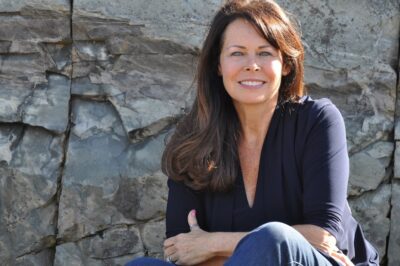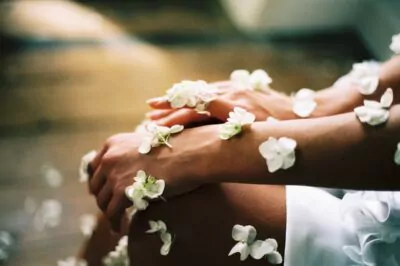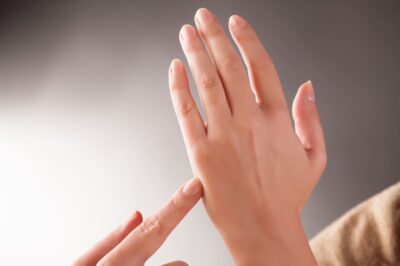An interview with Cheryl Richardson, author of Waking up in Winter
When you wake up in the morning, what's the first thing you do? A common answer to that is something like, “I check my email.” or “I make sure that everyone in the house is awake and fed and ready for their day.” That means that a lot of people (we may even venture to say “most people”) are starting their days by immediately doing something for someone else… often times because we feel we have to. Are you one of those people?
We find ourselves here sometimes—feeling like our lives are scheduled around everything around us—so we interviewed Cheryl Richardson. She's a self-care advocate that offers the tools to take care of ourselves first so we can feel in control of our own time spent, and give it to others without guilt or stress.
As a self-care advocate, you have a whole tool belt for yourself and the people that you coach, but with someone that's just starting out if they could do ONE thing for themselves, what would you suggest?
Most people need more space in their lives. The first place to begin practicing self-care is to carve out time for yourself. If I challenged you to look at your calendar for the next month and eliminate 25% of what’s scheduled, what would you let go of? It’s important that we don’t confuse tough choices with having no choice at all. We can always say no, change our mind, back out of a commitment, etc., in order to have more time to ourselves. The object of good self-care is to build a more loving and compassionate relationship with oneself and that begins with devoting time to our own needs.
How did you start coaching, and more so, what brought you to help people focus on their own self care?
I’ve always had an insatiable curiosity about people. In 1995, after working for a number of years as a tax consultant supporting successful business owners, I was introduced to a man who was coaching clients to live high quality lives, and I enrolled in a training program he developed based on his work. I started working with clients to help them reset priorities, eliminate energy drains, invest in their financial health, and create more satisfying relationships. I’ve been blessed to do this work for more than 20 years and it’s been deeply fulfilling and meaningful.
Your new book, Waking Up in Winter, just hit the shelves. It's about discovering what really matters at midlife—can you talk us a little bit about the specific challenges that you work through, and help readers work through, in this book?
Waking Up in Winter is a memoir in journal form that shares my midlife journey with readers. Rather than offer self help strategies in a “how-to” format, something I’ve done in past books, I wanted to do something different. I wanted to show readers exactly what I do to practice better self-care at midlife. This book tells the story of what happened when I began reevaluating everything – my marriage, my friendships, and my work, as well as my choices and goals. It’s a reassuring guide for women who are in transition and who are rethinking how they live their lives, too.
I like that you talk about how selfishness leads to selflessness. That's a bit polarizing, could you talk us through that idea?
Yes, most people who are overwhelmed or exhausted from not practicing good self-care strategies often end up making choices out of guilt or obligation. When we take care of ourselves, make space for our own needs, and get comfortable with disappointing others—a must if you want to live a soul-directed life—we end up making choices from love and we experience the joy of being of service. That’s a win-win for everyone.
It looks like you don't just have books to help people, but you also have a practical guide along with a few different card decks to choose from. Is there a best way to use these? All together or separately?
I’ve created several tools that help readers to remember to make their self-care a priority. I use my card decks—Self Care Cards, Grace Cards, and My Daily Affirmation Cards—around the house to keep me focused on good thoughts. I also put individual cards in every piece of correspondence that leaves my home and office, as well as leave them at restaurants, when I go to the bank, and at other establishments. I like to spread the love around.
It seems like you've done a lot, a radio show for 10 years, books, cards, regular blogging, and personal coaching. How do you find time in a busy schedule for your own self care routine?
At this point in my life my schedule is usually beautifully balanced. It’s important to me that I walk my talk so I do my best to keep a sane schedule. It’s taken me years of teaching what I’ve needed to learn to consistently put it into practice in my life and I’m pretty good at doing so now.
What is your favorite self-care routine—is it a routine, or would you say that you just take intentional ‘you' time?
My most important self-care practice is to hold my mornings as sacred. I stay away from the phone and email and instead spend time writing, meditating, feeding the birds, contemplating life and my business, and creating. I’ve been doing this for years now and I’m much better to be around because of it :).
If someone wanted to say, have a personal coaching session with you, how could they get in touch?
While I no longer maintain a private coaching practice, I do host regular self-care retreats for women and I also hold a weekly Facebook Live coaching session for members of my online community who would like support. People can learn more about these events at cherylrichardson.com and at Facebook.com/cherylrichardson
Waking up in Winter
Cheryl's newest book is called, Waking up in Winter, and its out now. Maybe you're working through your midlife or maybe you're just curious about what the most important parts of midlife are and how to make a self-love plan to help get yourself through a time that can be especially challenging for women—this book is a first hand experience full of examples of self-care and may be exactly what you need to get you through a transitional time.






Leave a Reply